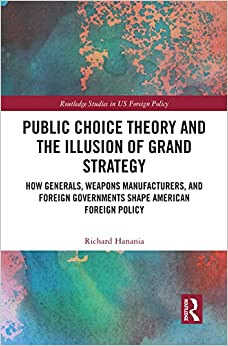Richard Hanania in his Substack newsletter:
 Ever since I started studying IR, I had a gnawing feeling that something about the whole enterprise was off. As I read more history, and also in other fields like economics, anthropology and psychology, I came to the conclusion that the ways in which we talk about international relations and foreign policy are simply wrong. The whole reason that IR is its own subfield in political science is because of the “unitary actor model,” or the assumption that you can talk about a nation like you talk about an individual, with motivations, goals, and strategies. No one believes this in a literal sense, but it’s considered “close enough” for the sake of trying to understand the world. And although many IR scholars do look at things like psychology and state-specific factors to explain foreign policy, they generally don’t take the critique of the unitary actor model far enough. The more I studied the specifics of American foreign policy the more it looked irrational on a system-wide level and unconnected to any reasonable goals, which further made me skeptical of the assumptions of the field.
Ever since I started studying IR, I had a gnawing feeling that something about the whole enterprise was off. As I read more history, and also in other fields like economics, anthropology and psychology, I came to the conclusion that the ways in which we talk about international relations and foreign policy are simply wrong. The whole reason that IR is its own subfield in political science is because of the “unitary actor model,” or the assumption that you can talk about a nation like you talk about an individual, with motivations, goals, and strategies. No one believes this in a literal sense, but it’s considered “close enough” for the sake of trying to understand the world. And although many IR scholars do look at things like psychology and state-specific factors to explain foreign policy, they generally don’t take the critique of the unitary actor model far enough. The more I studied the specifics of American foreign policy the more it looked irrational on a system-wide level and unconnected to any reasonable goals, which further made me skeptical of the assumptions of the field.
That’s pretty abstract, so let’s make it concrete. Think about the most consequential foreign policy decision of the last half century. Why did America invade Iraq in 2003?
More here.
